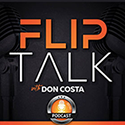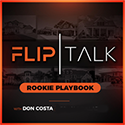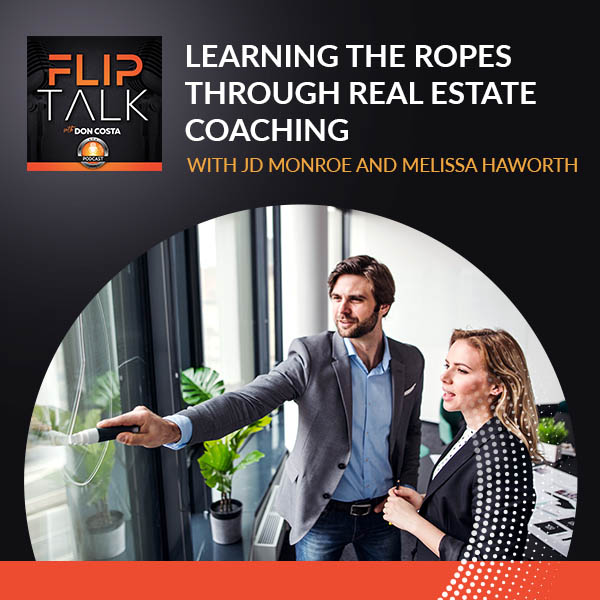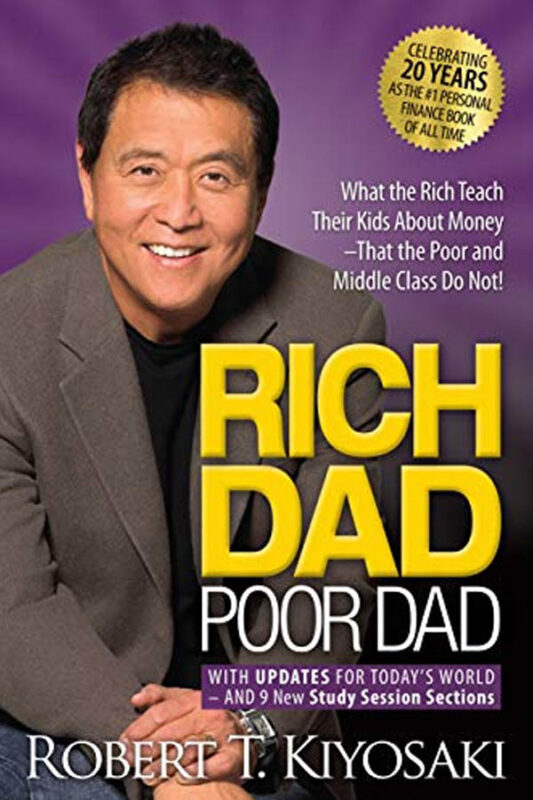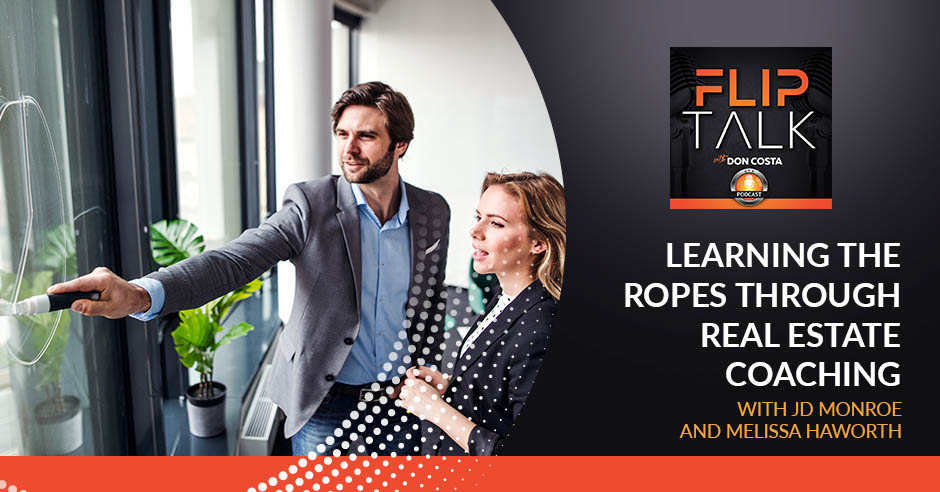
The world of real estate can be challenging to navigate. But if you know the ins and outs, real estate can be quite a profitable industry to cash into. In today’s episode, real estate veterans JD Monroe and Melissa Haworth walk us through how to be better real estate investors through coaching programs and learning from those who have made it big in the industry. Listen in and find out how any real estate investor can take their business to the next level.
—
Listen to the podcast here
Learning The Ropes Through Real Estate Coaching With JD Monroe And Melissa Haworth
I have some amazing guests with me. Before I jump into that though, I want to talk a little bit about all the things we have going on. You’ve heard me mention it on multiple episodes here. We’re just doing some amazing things with the Flip Talk community. If you go to FlipTalk.com, you can see a lot of what’s going on.
At the top right-hand corner, you got some opportunities to grab some coaching, join our mastermind, or possibly even come to one of the events we’re doing. We do these events now three-day deep dive boot camps into everything you need in your business. We give you what you want before you get done with that three-day. You’ll walk away with the ability to implement a plan and take action. With that said, I have JD and Melissa with me. How are you doing?
Awesome. Thanks, Don.
Doing great. Thanks for having us on, Don.
I think you’re the first guest I’ve had in a while that gave me a list of things I wasn’t allowed to talk about. I was thrown out there. I’m just kidding. We’ve had you on before, but in case somebody’s reading this episode and doesn’t know who you two are, let’s talk about how you got into the real estate investing space and what it is that you guys do.
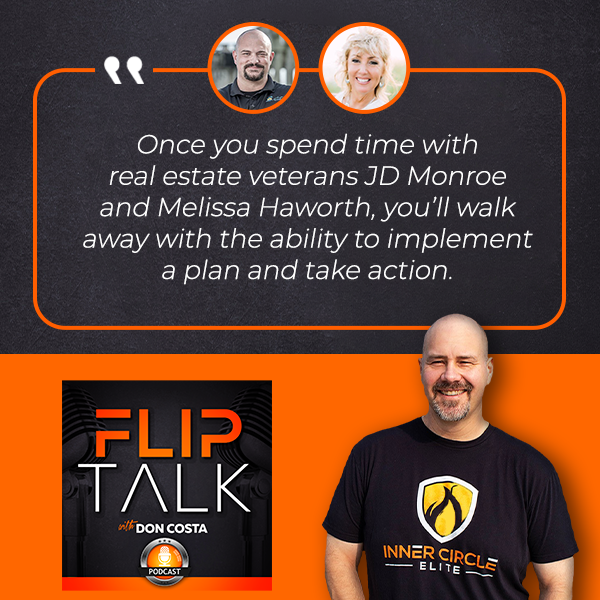
You go first. I’ll follow up.
I was an active-duty Air Force member for seventeen years. Along the way there, I found real estate. I read Rich Dad Poor Dad. I got on to BiggerPockets and decided that real estate was a better investment vehicle for me than the stock market. I had some money saved up. I purchased my first property. It was a HUD Home Store property.
I did a rehab on it using my own money from a construction loan. I did all the work myself. It took three times longer than I thought it would. I learned a ton. I refinanced that with a VA loan, and then shortly after that, I got orders and rented that property out. That was in 2014. I still have that investment property now. It’s been rented out pretty consistently, all except for four months in all of that time.
I had a couple of bad maintenance issues and had to replace a roof and stuff. Overall, it’s a cashflow positive. When I refinanced it, I got all the money I put into it back out. I used that money to roll into another property, and then I did essentially the same thing rolling that money. I wanted to be a buy-and-hold investor. That’s the only thing that I could see at that time. I went to a couple of masterminds. A mastermind where I met you, Don, and Melissa was there. We hit it off. Me and Melissa decided to partner up on some deals and we ended up building a business together.
Mine is a little bit the same. I had been an agent in California. I did a bunch of flips out there. I fell out of the real estate then came back in. Rich Dad Poor Dad is the same thing and then BiggerPockets. I then met you guys. I met Don in Arizona where you schooled me that I needed to unload all my properties because they were not cashflowing, which I appreciated. I took it from there.
We partnered up and started a wholesaling business in Birmingham. I don’t know if it was because of our lack of experience and knowledge on how to do things or not. What we saw was that the spreads we were able to get in Birmingham were somewhere between $3,000 to $5,000 per deal. When Melissa’s other company came to Panama City after the hurricane, there was a lot of opportunity.
We came down here and started immediately with the same systems and the same way we were doing everything up there catching $15,000 spreads. We decided to focus a lot more of our energy down here in the Panhandle. Eventually, our business took off to the point where I didn’t want to be in the Air Force anymore. I got out to come down here and help lead our team and work with Melissa full-time. Just before I got out of the Air Force is when you started Inner Circle Elite. We joined that and I took off from there as far as turning it more into a business than a hobby that it was before.
What is your business like now? What is it that you do? What’s your specialty? Wholesaling, buy-and-hold, Airbnb, all of the above. Tell me about that.
Wholesaling is such a dirty word in most communities that we don’t like identifying ourselves as that. We like to call ourselves real estate investors. We do have long-term buy-and-holds and some short-term buy-and-holds. When we first started, we wanted to do the fix and flip because it looks so profitable. What we realized, especially over the last couple of years with the way the market’s been going, is that we could get anywhere from 50% to 75% of the profit that we would get doing a flip from wholesaling it.
Instead of spending 3 to 4 months or a month in putting out all that cash to flip the property and having to deal with the headache of contractors and subs. If we can just wholesale it and catch that profit on the front end without as much risk, time, and people management, we would do that. We started doing a lot more wholesales than we were doing anything else. When Melissa reactivated her license to take on the leads that we couldn’t close on the investment side and started to list those, she started to build out a pretty big team on the agent side. We are managing 30 other agents, which is time-consuming.
It’s babysitting. Bars and brokerages are adult babysittings. Do you feel like having the brokerage takes away from your investing is a distraction?
Yes and no. It gives us the ability because it’s crazy, but about probably 95% of our clients are out-of-state investors wanting to buy in this market. It’s cool because it takes away from it, but it also brings us a whole another clientele that we can feed deals to as well.
I’m asking this question because you guys weren’t in St. Louis with us, but it came up in the last meeting and we were talking to an individual that has a brokerage and is an investor. The two are colliding and clashing and helping each other. When you asked about dollar for dollar, where was your time better spent, the investing side was the answer. The comment kept coming up of what business are you really in.
Have you felt like that challenges you at times between, “Am I listing it? Am I trying to buy it?” What are some of the obstacles to doing both? I want to be clear. I have a brokerage and I invest, but my brokerage is strictly to serve the investment company. We’re not trying to build a brokerage. For those of you building a brokerage, do you feel like one cannibalizes the other? Do you feel like it supports it? Is it something you’re still trying to figure out? What does that look like?
We are still trying to figure it out. We’ve looked at it. When you look at dollar for dollar or dollar for time spent, the investment side is way more profitable, way more fun, and most of the time way less frustrating than the agent side. The agent side does provide us with a lot of opportunities to monetize leads that we otherwise wouldn’t monetize.
The reason we started it was to feed the investment company and let the investment company make up some of the marketing costs from deals that we weren’t getting because it didn’t work out on the investment side. They wanted to sell but they didn’t necessarily need to sell. That was the idea and goal. That pivot happened right around the start of COVID or mid-COVID.
We started to become profitable and quick on the agent’s side of it. That helped us get through some of our downturns from the slowdown that we had because of COVID. Being a little bit hesitant to put a bunch of marketing dollars out gave us a dip. The agent side picked that up for us, and then it took a life of its own.
If me and Melissa were able to focus 100% of my time on the investment side, it would definitely be stronger. There is some value to the agent side. It might not necessarily be a monetary value, but as far as our recognition in the community and the ability for people to seek us out on that side, we pull them to the investment side. Two of our acquisitions guys came to us from our investment side. One of them became a realtor. One of them stays on the investment side. They complement, but the agent side is taking a lot of time and the return is not as great. It’s something that we’ve been talking about as a matter of fact.
I’m glad you’re open and honest about that because some people will say everything is great. If you have so much time, attention, money, and so many resources, it’s always a give and take. Trying to decide which one deserves your energy more can be a challenge. Speaking of challenges, what do you feel some of the challenges have been in building a real estate investing company? What are some of the hurdles you all have had to overcome in your journey?
One of the huge hurdles for me was the price shock. When we were very first starting, we were looking at these $20,000 and $30,000 homes and trying to wholesale them. The longer that we were in it, the more we realized that you can wholesale a $500,000 or $300,000 house. It’s maybe not quite as easy, but the amount of work and effort is very similar to what we’re doing on our $20,000 or $30,000 wholesale houses.
Usually, the dollar amount on the spread is bigger on those larger deals. I was afraid of that at first. That was a huge challenge. That is the mindset piece that we were talking about. It’s understanding that. Once we overcame systematizing and building team members, we’ve gone through so many team members, and it’s not even funny.
I think a lot of it is the learning process. Of course, everybody has that money issue when they’re starting out and when they don’t have anything, the private money or the funding stuff. Now looking back, it’s ridiculous that that was ever an issue. At that time, it seemed so insurmountable that I didn’t know how to conquer that.
Can you articulate how you did?
We got into these masterminds. It was more about seeing other people that were like us. Some people that were smarter and dumber than us were doing the same things that we wanted to do. If they can do it, I can do it mentality. That was the shift for me. Listening to the strategies like networking, sharing stuff on your social media, making sure people understood what you were doing, and not being secretive about your investment business, the life that you’re living, and the opportunities that you had.
Get into mastermind groups. Learn from other people who are like you. Share on XThe struggle that I thought we had was pulling JD along because he is super conservative. I’m like, “Let’s do it. The numbers are good.” He’s super conservative about that. We’re moving past that. The other part would be consistency. Just because you get caught up in so much that’s going on and the fires you’re putting out, it’s so important. Especially in the marketing part, it is being consistent. Every single month, you’ve got to be consistent. That’s what I view our struggles as.
I absolutely agree that consistency for sure is always a challenge. What are some of the marketing channels you’re doing right now that you feel are working for you when it comes to getting deals?
SMS was our number one marketing channel. We have switched platforms from the one we were using to a new one. That has dried up and completely stopped because we haven’t implemented getting those texts back out. That was the number one marketing channel for us, and we’re struggling with that right now.
Between direct mail and cold calling, those are probably the best marketing channels that we had. Direct mail dropped off a lot for us, and then we stopped sending it a little bit and increased our text messages to fill that gap. Now that the text messages are going away, we’re coming back to the direct mail, to the niche lists using our lead specialist/cold-caller to receive those calls.
What advice would you give somebody that’s just starting out in this business? If somebody was trying to get some moment, you were starting all over again. What advice would you give?
Take action. Stop worrying about how you’re setting up your business, business name, entity, and business card. Start and do something.
Take action. Stop worrying about how you're setting up your business. Just start and do something. Share on XIs there any book you’d recommend?
The number one book that I recommend regardless of what type of investing you’re doing is If You Can’t Wholesale After This: I’ve Got Nothing For You by Todd Fleming. That’s because it gives you a baseline foundation in deal acquisitions. It is more wholesaling-focused, but that applies to whether it’s buy-and-hold or fix-and-flip, and learning how to get those deals in.
It’s a cliché book, but How to Win Friends and Influence People is one that’s a huge benefit because this business is all about the relationships that you build. How you can leverage other people’s time, effort, and money, how you can provide value to them, and how to win friends and influence people helps you communicate better.
Mine would be Profit First.
There’s Profit First For Real Estate Investing now by David Richter who’s going to be speaking at our July 2023 meeting.
That’s going to be cool.
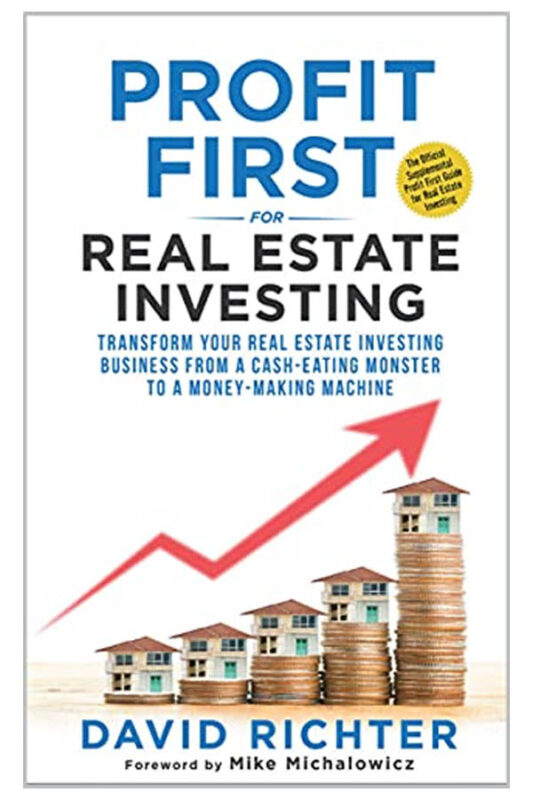
Profit First for Real Estate Investing: Transform Your Real Estate Investing Business from a Cash-Eating Monster to a Money-Making Machine (David Richter)
This has been round two with you two. You guys are obviously doing some amazing things. You guys are doing Airbnbs too. We mentioned that a little bit, but tell me about the Airbnb business for you. How many do you have right now?
We have four. We’re taking on some co-hosting on some other investors as well because that’s been a need in our community to have good people running your business for you. We’re trying to help do that too.
Do you feel like Airbnb has been the right move for where you’re at?
Yes, 100%. We are trying to move away from the long-terms to get more short-terms.
We’re not sure if it’s going to be a 1031 exchange right now because the timeline is coming down and prices are hot. We’re selling off six of our long-term rentals to move all that money into short-term rentals in this market where we can manage right now.
I appreciate you two being on. If you’re getting value from this episode and if you are finding and liking what you’re reading to be of value, make sure you’re sharing it with as many people as you can and letting people know that Flip Talk does exist. I’m going to mention this in a few episodes. We did Rookie’s Playbook years ago with my buddy Ryan.
Flip Talk Rookie Playbook was an enormous and fun project. It was something that added a lot of value. I’m rebooting Rookie Playbook. We’re going to do a Rookie Playbook 2.0. My son who’s getting ready to turn eighteen in 2023 who’s been doing some stuff with me and got some deals in contract. He’s going to be my co-host for that.
Rookie Playbook is going to be a series where we talk about from what you do when you get the wild crazy idea that you want to be an investor all the way up through. We’ll take you through a year with 52 episodes. It’ll be an amazing project. Make sure you look out for that. In fact, if you want to get notified when Rookie Playbook gets released, go to FlipTalk.com/RookiePlaybook. We’ll have a list there for you. Drop your name and email, and we’ll let you know as soon as that comes out. JD and Melissa, thank you so much for being with me. I really appreciate you.
Thank you.
Thanks, Don.
Important Links
- JD Monroe
- Melissa Haworth
- Rich Dad Poor Dad
- If You Can’t Wholesale After This: I’ve Got Nothing For You
- How to Win Friends and Influence People
- Profit First
- Profit First For Real Estate Investing
- FlipTalk.com/RookiePlaybook
